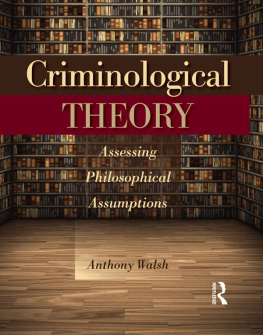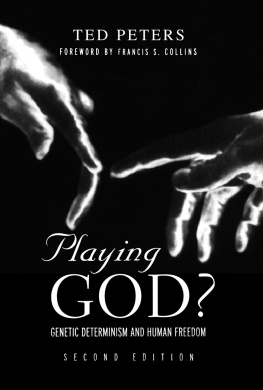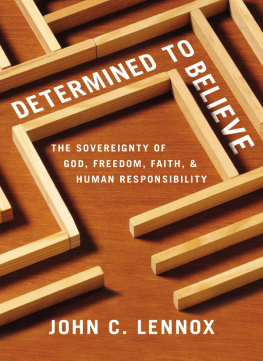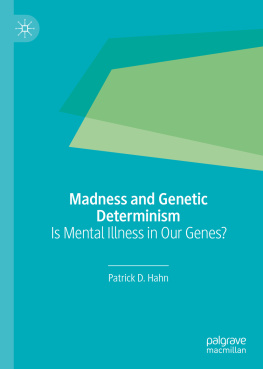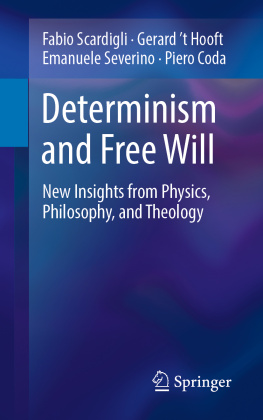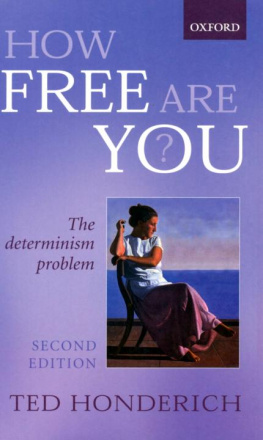
FERNAND BRAUDEL CENTER STUDIES IN HISTORICAL SOCIAL SCIENCE
Series Editor: Richard E. Lee
The Fernand Braudel Center Studies in Historical Social Science will publish works that address theoretical and empirical questions produced by scholars in or through the Fernand Braudel Center or who share its approach and concerns. It specifically seeks to promote works that contribute to the development of the world-systems perspective engaging a holistic and relational vision of the worldthe modern world-systemimplicit in historical social science, which at once takes into consideration structures (long-term regularities) and change (history). With the intellectual boundaries within the sciences/social sciences/humanities structure collapsing in the work scholars actually do, this series will offer a venue for a wide range of research that confronts the dilemmas of producing relevant accounts of historical processes in the context of the rapidly changing structures of both the social and academic world. The series will include monographs, colloquia, and collections of essays organized around specific themes.
VOLUMES IN THIS SERIES:
Questioning Nineteenth-Century Assumptions about Knowledge I: Determinism
Richard E. Lee, editor
Questioning Nineteenth-Century Assumptions about Knowledge II: Reductionism
Richard E. Lee, editor
Questioning Nineteenth-Century Assumptions about Knowledge III: Dualism
Richard E. Lee, editor
Questioning Nineteenth-Century Assumptions about Knowledge
I
D E T E R M I N I S M
Edited by Richard E. Lee
Foreword by Immanuel Wallerstein
FERNAND BRAUDEL CENTER
STUDIES IN HISTORICAL SOCIAL SCIENCE
Published by State University of New York Press, Albany
2010 State University of New York
All rights reserved
Printed in the United States of America
No part of this book may be used or reproduced in any manner whatsoever without written permission. No part of this book may be stored in a retrieval system or transmitted in any form or by any means including electronic, electrostatic, magnetic tape, mechanical, photocopying, recording, or otherwise without the prior permission in writing of the publisher.
For information, contact State University of New York Press, Albany, NY
www.sunypress.edu
Production by Diane Ganeles
Marketing by Michael Campochiaro
Library of Congress Cataloging-in-Publication Data
Questioning nineteenth-century assumptions about knowledge / edited by Richard E. Lee ; foreword by Immanuel Wallerstein.
v. (The Fernand Braudel Center studies in historical social science series)
Includes bibliographical references and index.
Contents: v. 1. Determinism
ISBN 978-1-4384-3391-2 (hardcover : alk. paper)
ISBN 978-1-4384-3390-5 (pbk. : alk. paper)
1. Knowledge, Theory of. I. Lee, Richard E., 1945
BD161.Q47 2010
121dc22 2010004836
10 9 8 7 6 5 4 3 2 1
PARTICIPANTS
KEITH BAKERHistory, Stanford University, Stanford, CA
AVIV BERGMANAlbert Einstein College of Medicine, New York, NY
DAVID BYRNESociology and Social Policy, Durham University, Durham, UK
JOO CARAADirector of Science, Gulbenkian Foundation, Lisbon, Portugal
JOHN CASTIInstitute for Monetary Economics, Technical University of Vienna, Austria; and Complexica, Inc., Santa Fe, NM
JEAN-PIERRE DUPUYEcole Polytechnique [GRISE], Paris, France; and Stanford University, Stanford, CA
IVAR EKELANDMathematics, University of British Columbia, Vancouver, Canada
ELIZABETH ERMARTHCultural Studies, Trent University, Peterborough, Ontario, Canada
JOHN MARTIN FISCHERPhilosophy, University of California, Riverside, Riverside, CA
STEVE FULLERSociology, University of Warwick, Warwick, UK
FERNANDO GIL [deceased]Ecole des Hautes Etudes en Sciences Sociales, Paris, France
ALEXEI GRINBAUMCentre de Recherche en Epistmologie Applique, Ecole Polytechnique, Paris, France
HELEN LONGINOPhilosophy and Women's Studies, University of Minnesota, Minneapolis, MN
V. BETTY SMOCOVITISZoology and History, University of Florida Gainesville, Gainesville, FL; and Philosophy and History of Science, University of Athens, Athens, Greece
BOAVENTURA DE SOUSA SANTOSCentro de Estudos Sociais, University of Coimbra, Coimbra, Portugal; and Law School, University of Wisconsin Madison, Madison, WI
IMMANUEL WALLERSTEINSociology, Yale University, New Haven, CT
RICHARD E. LEE (Scientific Secretary)Fernand Braudel Center, Binghamton University, Binghamton, NY
ILLUSTRATIONS
The Two Modern Worldviews
The Two Modal Logics of History
The Epistemic Rudiments of Time Travel
The Main Intermediary Figures between Aristotelian Necessity and Modes of Non-Necessity
FOREWORD
T his volume is one of three in a series devoted to the theme: Questioning Nineteenth-Century Assumptions about Knowledge. The project was organized by Jean-Pierre Dupuy (a philosopher of science affiliated with the Centre de Recherche en Epis tmologie Applique, Paris), Aviv Bergman (an evolutionary biologist who directs the Aviv Bergman Laboratory at the Albert Einstein School of Medicine, New York), and Immanuel Wallerstein (a sociologist, formerly Director of the Fernand Braudel Center at Binghamton University and currently a Senior Research Scholar at Yale University). Its Scientific Secretary was Richard E. Lee, the current Director of the Fernand Braudel Center.
The underlying premise of this series of conferences was that, in the last thirty years, scholars in all fields have been raising into question some of the fundamental premises of the modern view of knowledge, as it had been developing for at least five centuries and, in particular, as it was codified in the nine teenth century. It was at that time that a view of knowledge that was determinist, reductionist, and dualist came to predominate the intellectual scene, and found parallel expression in the natural sciences/mathematics, the social sciences, and the human ities/philosophy.
This consensus, once very widely shared, was seriously challenged in all three arenas in the last quarter of the twentieth century. The object of the series of conferences was to explore the degree of convergence of the questioning in the three arenas, which has often been clouded by the fact that different terminologies are being used in many cases.
The format we used was the following. We sought to have sixteen participants: the three organizers and the scientific secretary; three persons to prepare background papers for that meeting, coming respectively from the natural sciences/mathematics, the social sciences, and the humanities/philosophy; and nine others, three from each of the three arenas, who participated in the debate. The only persons who were present at all three meetings were the three organizers and the scientific secretary. Each meeting had four sessions of a half-day in length: one each to discuss the background paper in each of the three arenas, and a fourth in which the three organizers led an integrative discussion. We found this formula to be very productive.


